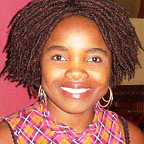To fight a 2nd wave of Covid-19 without a vaccine, Africa must stick with what worked in phase 1.
All countries benefit from their WHO membership
Commenting on the planned US withdrawal from WHO in a recent Interview with Time on Thursday 24 September, the WHO Director-General Dr Tedros Adhanom Ghebreyesus said that US “Withdrawing from WHO actually hurts the US, because being part of WHO is not just to help those who need support. The US also benefits from being a member of WHO.” The WHO Chief said that one of the most visible impacts of US withdrawal is how weak global solidarity has become without US leadership. Without US leadership, the “major global powers are not working together.”
It is clear that the lack of coordination has exacerbated the number of lives lost in the US and in Europe where governments ignored WHO leadership and refused to implement its recommendations. The US has lost as many lives as were predicted for Africa which has seen far fewer casualties because of it implemented public health measures early and fast. Nine months into the pandemic begun, the crisis is still unfolding and nations are increasingly desperate to find way of ending the Covid-19 catastrophy.
The second wave could double lives lost
The most practical path that offers the best possibility for a return to pre-pandemic normality around the world is finding a safe, effective and affordable vaccine capable of bringing Covid-19 under control. No country in the world is untouched by Covid-19. The global tally stands at 32 million confirmed cases and close to a million people have lost their lives. Many countries are already seeing the beginning of the second wave of infections, and there could be third and fourth waves to come. European nations are already re-entering lockdown in efforts to limit second-wave transmission. There is a glimmer of light though. There are strong indications that the regulatory approval of one of the three leading candidate vaccines might be imminent, but there is still no guarantee that a working vaccine will ever be developed for COVID-19.
Solidarity works when times are good
Nevertheless, should a vaccine is licensed, our ability to bring Covid-19 under control will depend on widespread use of this vaccine. It would need to be universally accessible to all people. However, ensuring widespread access to a Covid-10 vaccine will be a great challenge given the predominant perception of us versus them amongst nations. In the current geopolitical context, vaccine nationalism is the order of the day, and each country to its own. Solidarity is not for times such as this. It works best during good times, or when someone is benefiting from expressions of solidarity. Recent history of pandemics has confirmed this.
History has also confirmed that this lack of solidarity amongst nations equally hurts the domestic interests of any country as well as external ones. Failure to support Italy to quickly bring its Coivd-19 outbreak under control by EU nations allowed Italy to become a epicentre of Covid-19 spread into Europe and the world. This is why the actions of the US failing to take measures to control Covid-19 domestically should concern all nations. Similarly, its rejection of WHO authority or the idea of acting in solidarity with other nations hurts the entire global effort to bring Covid-19 under control.
The second wave could double the number of lives lost from Covid-19
According to the WHO, the cost of failing to ensure that a vaccine is widely used is that the death toll of the Covid-19 pandemic could reach 2 million deaths. The WHO Director General Dr Tedros echoed the sentiments of other global health leaders on the dangers of vaccine nationalism, saying “If people in low- and middle-income countries miss out on vaccines, the virus will continue and the economic recovery globally will be delayed.
Similar to other nations, African countries are preparing to stave off a second wave of Covid-19. The best case scenarios is of course that Africa too will have access to vaccine and in this case, policymakers should plan for what happens once a safe vaccine that is capable of stimulating protective immunity, that can be mass produced in adequate quantities to meet the unprecedented global demand becomes available. Africa’s global health leaders at the WHO Africa and Africa CDC are leaving no stone unturned to secure vaccine for the region.
The biggest hurdle to securing vaccine will be overcoming the false dichotomy of us versus them which has so far predominantly influenced the global response to Covid-19. In all likelihood, Africa and other LMICs will not have access to the early vaccine produced. However, Africa has tools that have been proven to work. Its first phase early and aggressive measures successfully slowed community transmissions and limited loss of life. Therefore, preparations for the second wave should equally emphasise preparedness and maintain the public health measures that have been so successful at containing viral community spread during the first wave.
